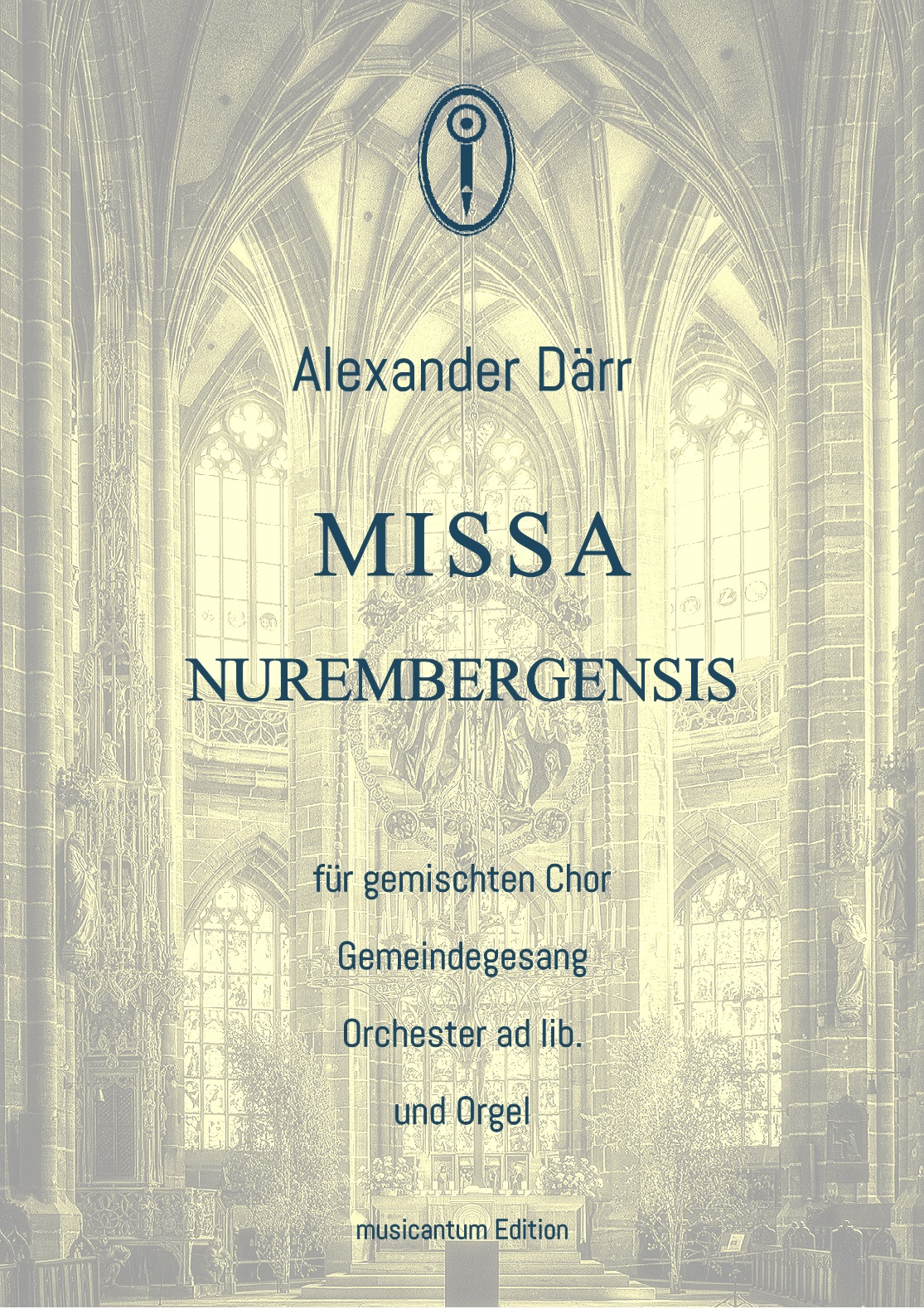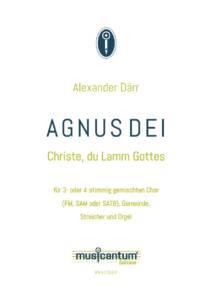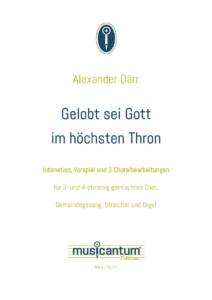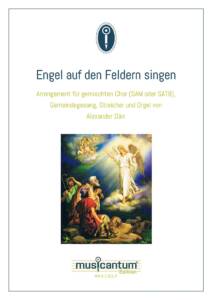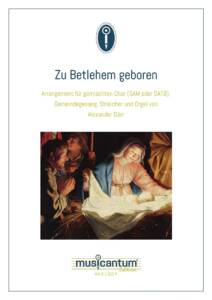Alexander Daerr
MISSA NUREMBERGENSIS
For choir, congregational singing, orchestra and organ
incl. VAT
Previously, the singing of the Latin texts of the Ordinary Missae with Kyrie, Gloria, Sanctus-Benedictus and Agnus Dei was left exclusively to the choir and was spoken by the priest himself. The congregation had the role of listener and spectator. According to the modern understanding of the liturgy, however, the choir, soloists and musicians are just as much a part of the congregation present and are therefore placed on the same level as the congregation in the nave.
Based on this understanding of the liturgy, Alexander Daerr composed a mass which, on the one hand, has the musical splendor of the choir, orchestra and organ and, on the other, involves the congregation as an equal group with its singing. Classical hymns form the basis of this new composition. The parts of the mass have a string accompaniment with a partly independent organ part. In addition, versions with only organ accompaniment have been published for each part of the mass.
“The choir, organ and strings are highly independent and each tonal element contributes its part to the appealing overall picture of the mass. The use of the chorale “Allein Gott in der Höh sei Ehr” in the form of a toccata in the Gloria and the addition of triangle and xylophone in the Sanctus are particularly noteworthy. … The advantages of the greater variability with regard to individual editions should not be concealed… . A beautiful and practical work which is to be recommended“. (Kirchenmusik im Bistum Limburg 2/19)
Content: Kyrie Gloria Sanctus Agnus Dei
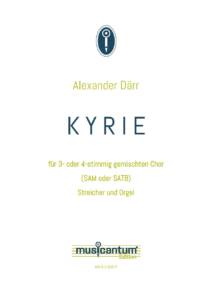


Please click on the cover for details.
Also arranged for choir, congregational singing and string/organ accompaniment:

